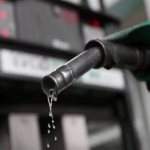The Central Bank of Nigeria (CBN) announced it disbursed $1.25 billion between January and September 2024 for petroleum product imports and associated goods, marking a 40% increase compared to the $891 million spent in the same period in 2023. This spike followed the removal of fuel subsidies and reforms aimed at boosting domestic oil production.
Despite the availability of petrol from the Dangote Refinery, fuel marketers continued to import petroleum products, citing the need for supplemental supply. This has strained Nigeria’s foreign reserves and impacted the naira’s exchange rate, as fuel imports remain a significant drain on foreign exchange.
In the same period, the CBN allocated $18.78 billion in foreign exchange to 19 sectors for imports and other activities. Specifically, petroleum imports accounted for $26.55 million in January, $161.88 million in February, and $334.47 million in March. April and May saw reduced disbursements of $106.48 million and $150.45 million, respectively. However, spending rebounded in June to $336.82 million and totaled $192.71 million and $107.10 million in July and August.
The National Bureau of Statistics reported Nigerians spent N5.14 trillion on mineral fuel imports in the third quarter of 2024.
In October, the Nigerian government fully deregulated the petroleum market, allowing refineries to sell directly to consumers. This followed a pricing conflict between the Nigerian National Petroleum Company Limited (NNPC) and the Dangote Refinery, which saw fuel prices spike to N1,060 per liter before falling to N935 per liter in December.
Industry players attribute high local fuel prices to dollar-linked costs for locally refined Premium Motor Spirit (PMS) and the expenses associated with crude imports. According to the Crude Oil Refinery Owners Association of Nigeria, many fees for local products remain dollar-denominated, further driving up prices.
To stabilize supply and lower prices, more marketers are partnering with the Dangote Refinery. Following a strategic agreement with MRS Oil Nigeria Plc that enabled fuel sales at lower prices, other marketers are exploring similar deals to enhance market competitiveness and ensure affordable pricing for Nigerians.










